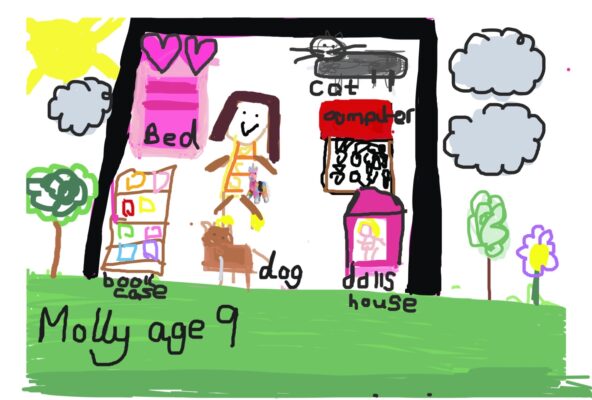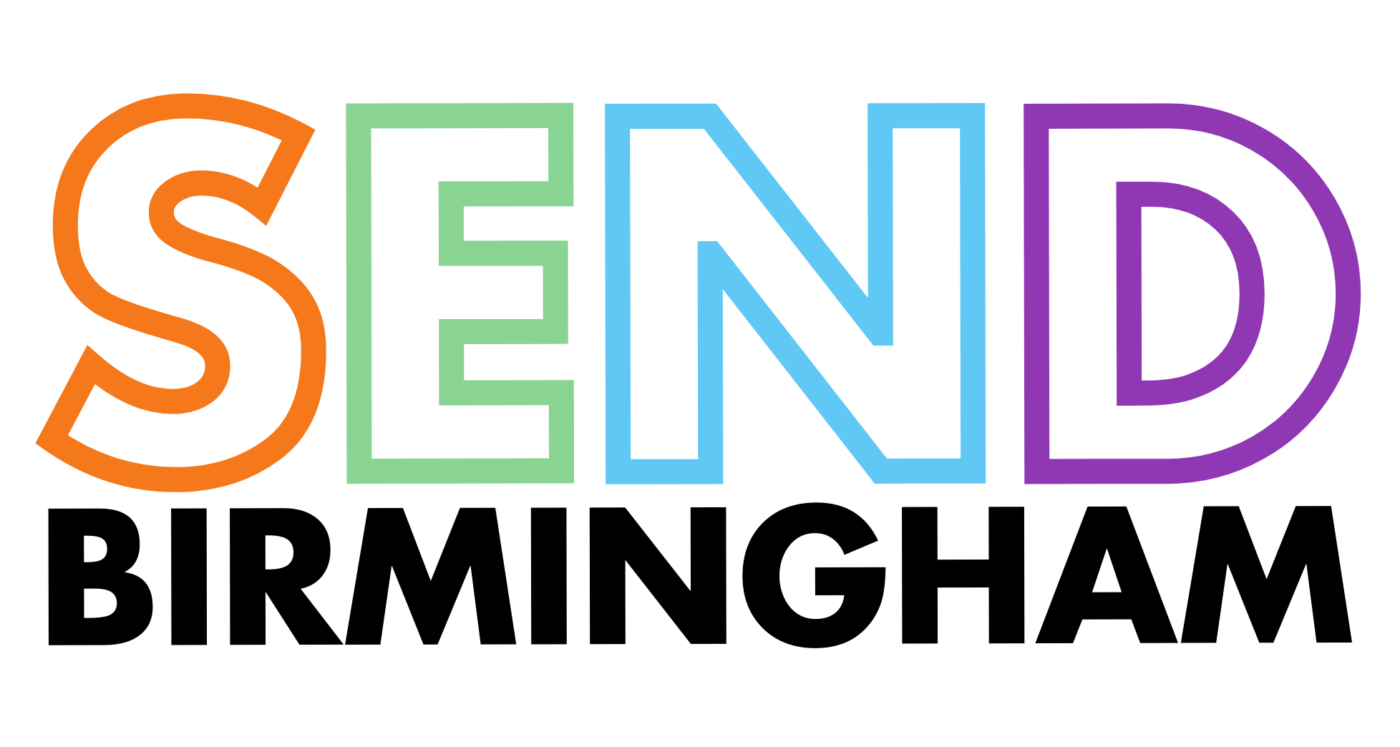 Local Health Services for Children and Young People with SEND
Local Health Services for Children and Young People with SEND
Staying well is essential to the physical and emotional health and wellbeing of all children and young people in Birmingham. The NHS provide ‘universal’ health services that everyone can use, however many children and young people with SEND may need to access more ‘targeted’ and ‘specialist’ health services to support their specific needs.
The following services are available for you and your child with special educational needs and disabilities.
Health visitors work with all parents who have new babies, offering support and advice from late pregnancy until the child is at school. Birmingham Forward Steps is a combined service which includes health visitors and voluntary agency partners across the Children’s Centres and delivers Early Years Health and Wellbeing support for children age 0 – 5 in Birmingham.
The school health support service will be delivered to all children and young people and their families where the child or young person is.
For more information click here.
School nurses are part of the Birmingham School Health Support Service (BSHSS), which is commissioned by Birmingham City Council. School nurses work across all mainstream schools to protect and promote the physical and emotional health of children and young people and to ensure that they get the most from their education.
Special school nurses undertake a range of nursing activities to maintain and improve the health of children and young people with complex health needs attending a special school.
Your General Practitioner (GP) is your ‘family doctor’ and the main point of contact for general healthcare for NHS patients. All UK residents are entitled to the services of an NHS GP. The GP treats all common medical conditions and may refer on to other specialist services if required.
Visit www.nhs.uk to find a local GP, dentist or pharmacy.
All young people and adults from the age of 14 years with a learning disability (LD) should have a health check every year by their GP. It is essential to ensure that the GP has all the children and young people’s names on their LD register so that families can be called for appointments for the annual LD health check. Unless a young person’s learning disability status is registered on the GP systems then reasonable adjustments to care for that individual cannot be anticipated and made.
Regular health checks can detect treatable illnesses and help prevent more serious ones, as well as familiarising the young person with the GP practice. which they may use throughout their adult life.
Find out more about annual health checks
Learning Disability Annual Health Checks resource centre
A diverse range of services are available in Birmingham to support children and young people’s mental health, which are provided by many local authority services, third sector and community organisations, as well as the NHS.
Forward Thinking Birmingham (FTB) is Birmingham’s mental health partnership which provides services for 0-25 year olds.
Find out more about Forward Thinking Birmingham here.
The Birmingham Education Partnership also offer links to mental health support and advice here.
Other resources:
| Resource | Age | Description |
|---|---|---|
|
11 – 25 |
Online mental health wellbeing community for children, young people and young adults. |
|
|
Up to 25 Parents & Carers |
1:1 sessions and groups for children, young people and young adults to talk about emotions and feelings. Opportunity to be heard, learn strategies and get support – no waiting list! Plus support for parents and carers on how to help their kids manage their emotions. |
|
|
All ages |
Online directory of health and wellbeing services in Birmingham and Solihull |
|
|
‘Being Well’ courses |
18+ |
The service is open to all Birmingham residents, over 18, currently only accessing primary care services. Support includes: – Self help, information, advice and guidance regarding mental health and wellbeing. – Mindfulness, anxiety management, Building Better Resilience for Stress and Anxiety, covid support.
|
Disclaimer – the SEND partnership is not responsible for 3rd party suppliers or organisations.
Occupational Therapy (OT)
Occupational therapists provide support to children and young people to participate in everyday activities of daily life, within the areas of self care, school and play/ leisure.
The NHS Community Occupational Therapy service in Birmingham provides advice, parent workshops and support for children and young people with a functional difficulty which has a significant impact on their participation in aspects of daily life.
Find out more about local occupational therapy within Birmingham Community Healthcare NHS Foundation Trust (BCHC).
Find out more about local NHS occupational therapy
- Accessing OT sensory assessments leaflet pdf
- Accessing OT sensory assessments leaflet Word
Birmingham City Council also provides an Occupational Therapy service which provides assessment and aids, equipment and adaptations at home for children and young people with disabilities.
Children and Young People’s Occupational Therapy Team (CYPOT)
Physiotherapy
Physiotherapy provides specialist assessment and a range of interventions to enable children and young people with physical difficulties to improve their quality of life and reach their potential.
Find out more about local NHS Physiotherapy
Speech and Language Therapy (SALT)
Children’s Speech and Language Therapy provides specialist assessment and intervention for children who have difficulty with speech, language and communication or with eating, drinking and swallowing.
Some children and young people may need specialist aids and equipment so they can participate in everyday activities and function as independently as possible.
The NHS Occupational Therapy service does not provide equipment and aids. Specialist equipment and adaptations for home are provided by the Local Authority Occupational Therapy service. Find out more here
The Local Authority Physical Disability Support Service (PDSS) provide advice and support to school settings.
Community paediatricians are specialist children’s doctors who are trained to assess and manage a wide range of developmental, physical and social issues that can affect a child’s health, safety and learning.
A team of healthcare professionals are based at four Child Development Centres across Birmingham. They provide co-ordinated team-based assessment and intervention for pre-school children who have complex developmental difficulties across the five Child Development Centres in Birmingham.
This specialist nursing service cares for children and young people who have a specialist nursing need at home or in a community setting.
The children’s community nursing and palliative care team cares for children in the community with a specialist nursing need. It can help children and their families manage:
- Life limiting or life-threatening conditions
- Oxygen dependent babies
- Chronic illness
- Childhood cancers
- Nasogastric tube feeding
- End-of-life and palliative care
- Bereavement support
Find out more about the children’s community nursing and palliative care team.
The transition from children’s to adult’s health services is a significant step and transition planning with health practitioners needs to start by school year 9 (age 13 to 14 years). Young people who are moving from children’s to adults’ services will have an annual meeting to review transition planning from age 13/14 onwards, until their transition is complete.
Ideally the health transition plans and reviews will link with other multi-agency review meetings such as the Annual Review of an Education, Health and Care Plan or SEN support plan.
All health services are required to have transition pathways for young people moving to adult health services. More details about this can be found from your local NHS Trust.
Continuing Care packages for children or young people up to 18 years is for those with highly complex health needs that cannot be met by services which are routinely available, for example services delivered from GP practices, hospitals or in the community.
These health needs may be the result of a congenital condition, long-term, life-limiting or life-threatening condition, disability or a serious illness or injury.
For these children and young people, they may be offered an additional care package known as Continuing Care.
Find out more about children and young people’s continuing care and read the government’s guidance on children and young people’s continuing care
For more information, call the children and young people’s continuing care team on 0121 612 2133.
Transition to Adult Continuing Healthcare provision
Continuing care packages for children and young people stops when a child/ young person reaches 18 years of age. For people over the age of 18 with severe and complex health needs, support may be provided through NHS continuing healthcare for adults. This is organised differently from continuing care for children and young people, and there is a different assessment process.
If your child/ young person receives continuing care and it seems likely they will need similar support when they are an adult this should be identified in discussion with you when they reach age 14 years. At 16-17 years your young person should be referred for initial assessment for adult NHS continuing healthcare. This should again be a multi-disciplinary assessment and a decision about eligibility should be made when they are 17 years old.
Personal Health Budgets
If you or your child has NHS funded complex healthcare needs, you can ask the NHS for a personal health budget. This is an amount of money from the NHS, which patients agree with their nurse to spend on their health needs. The aim is to give people more choice and control over their healthcare to increase their independence.
Personal health budgets – Birmingham and Solihull CCG
Health & Wellbeing


